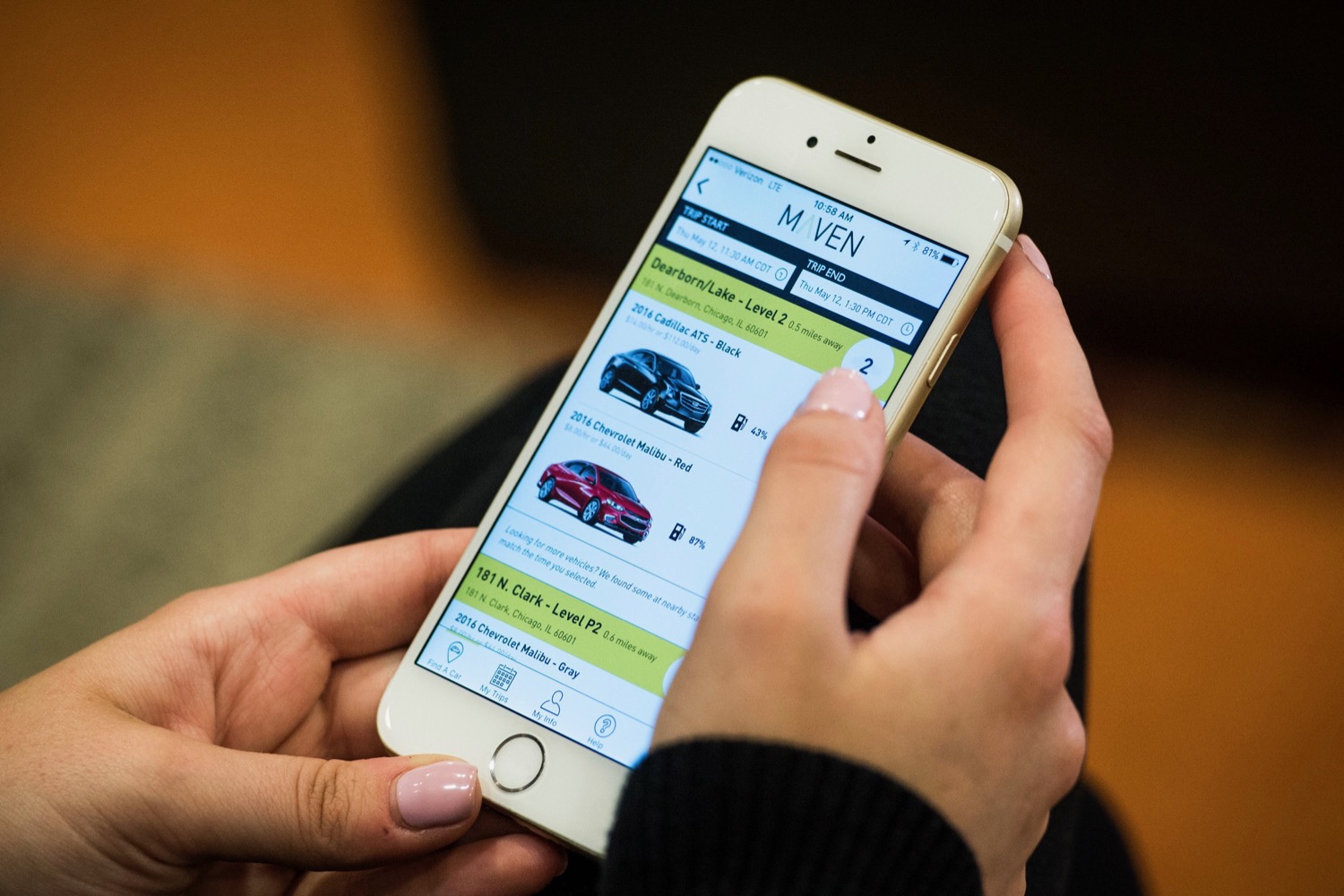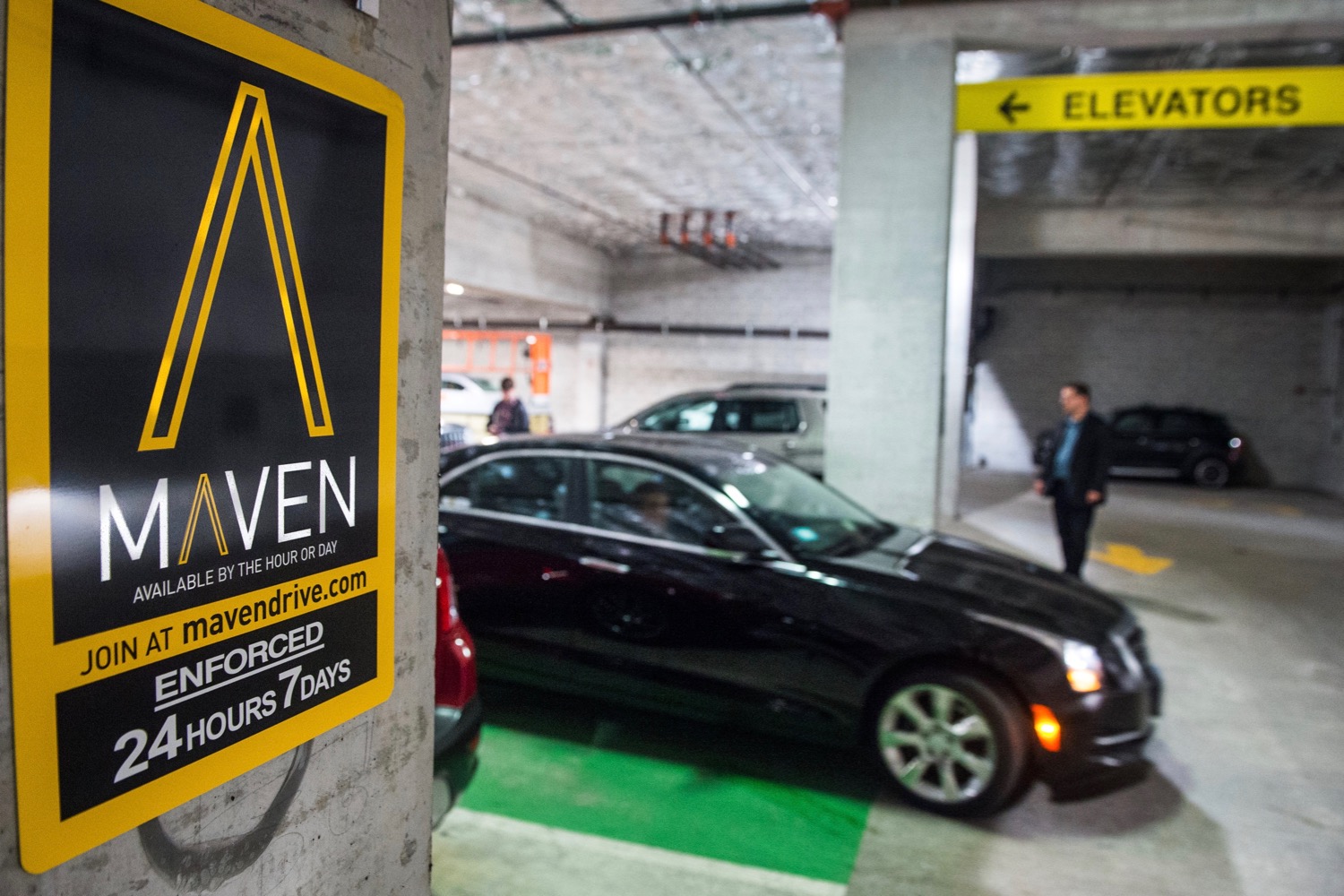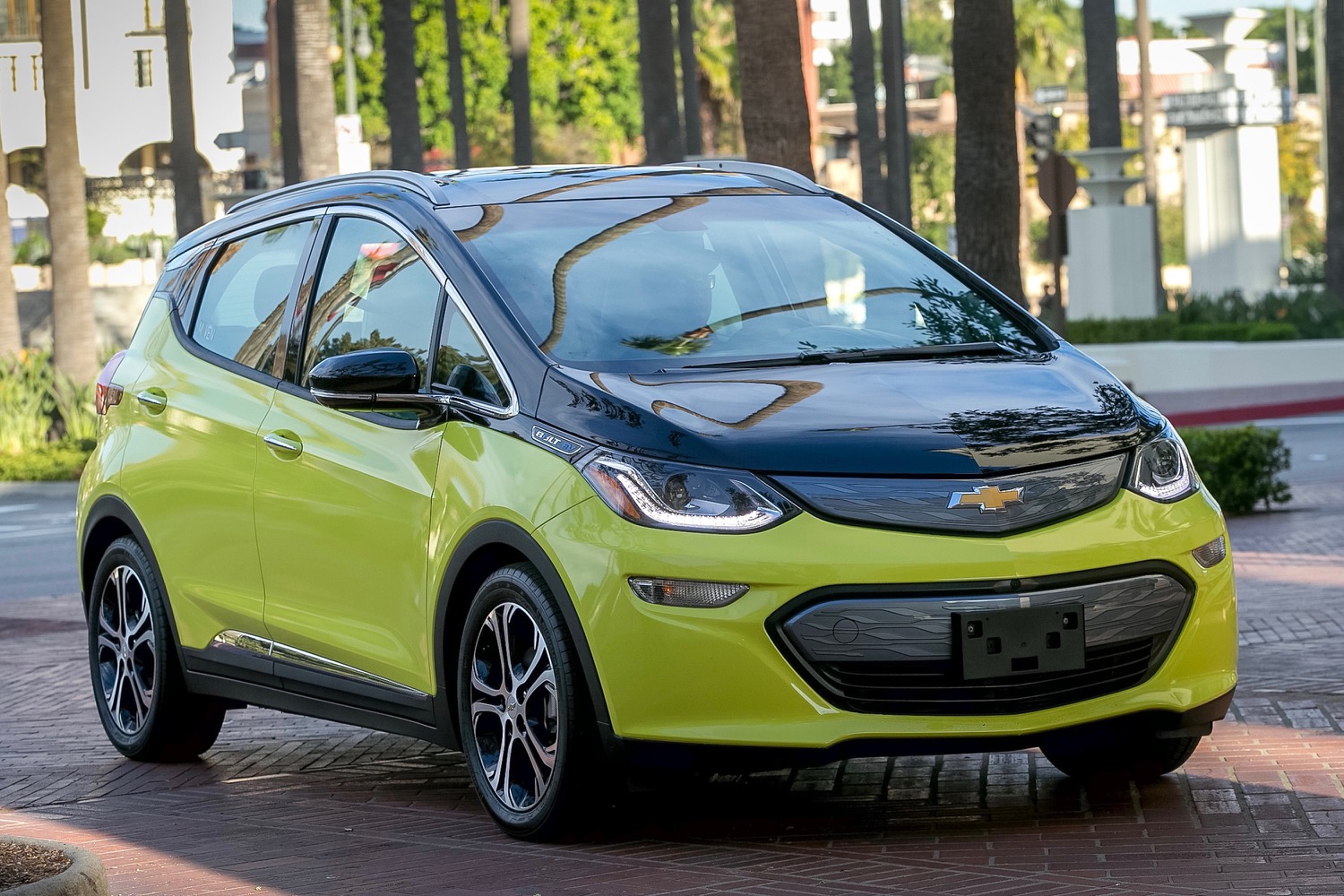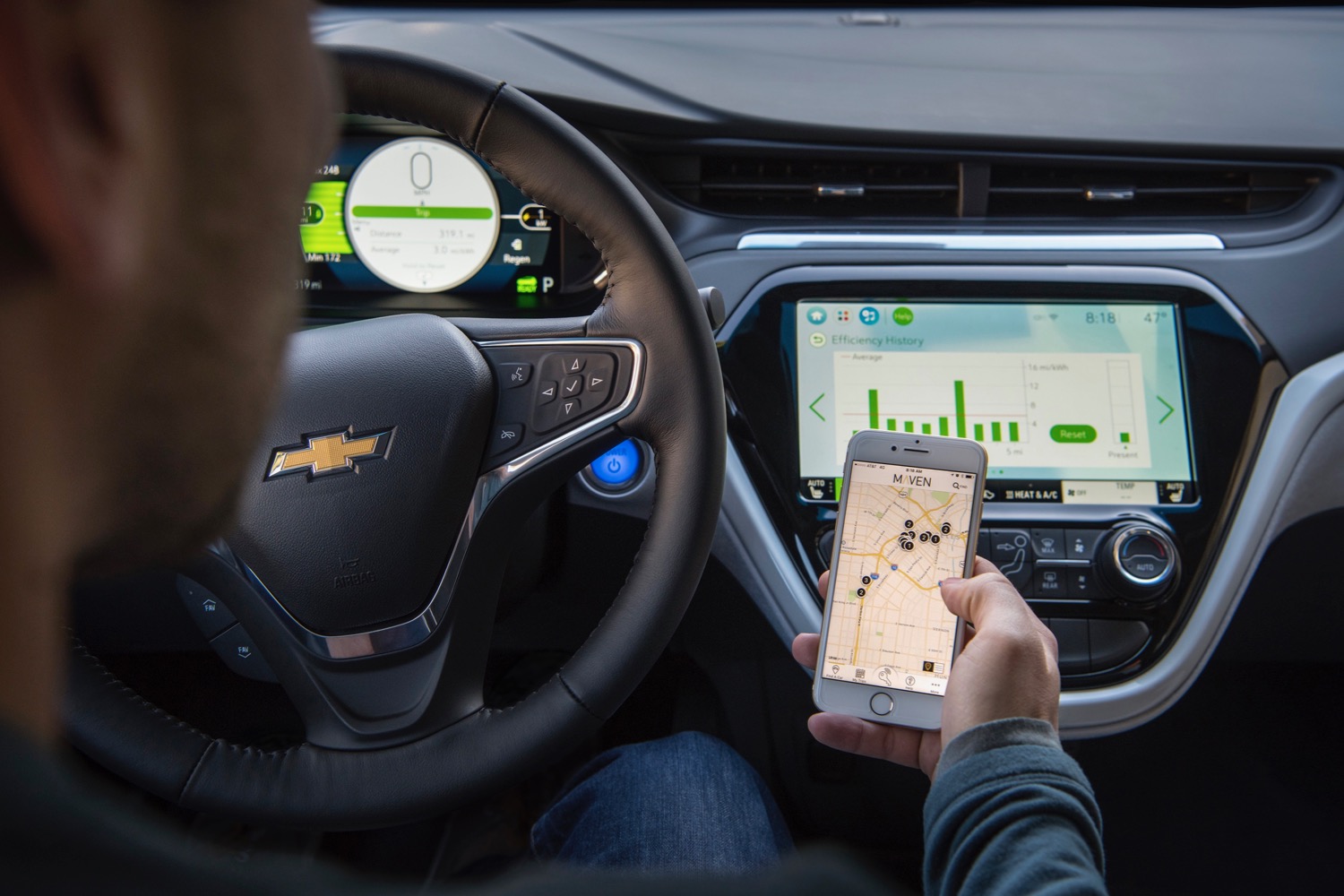If you don’t own a car, carsharing services can get you behind the wheel without the expense of monthly payments or maintenance costs — and without the hassle of having to find parking. From Zipcar to Turo, there are plenty of carsharing choices, but Maven is different. Maven is a carsharing service owned and operated by General Motors. It’s helping GM expand beyond car sales and cash in on the mobility service trend, but does that mean Maven is right for you? Here’s what you need to know.
What is Maven?
GM launched Maven in 2016 to offer mobility services using the automaker’s cars. Other automakers have tried this, with varying degrees of success. Daimler pulled its Car2Go service out of North America in 2019, although Car2Go continues to operate in other countries. Toyota operates a small-scale carsharing service in Hawaii.
Maven’s primary offering is a carsharing service akin to Zipcar, where customers rent cars by the hour or by the day, and pick them up from parking spots scattered throughout urban areas rather than at conventional rental lots. As with Zipcar, the advantages of Maven carsharing are the ability to rent cars for short trips, find cars located in or near your neighborhood, and not have to deal with the complications of standard rental services like Avis or Hertz.
Maven also offers so-called peer-to-peer carsharing in certain cities. Similar to Turo, this lets users rent out their own personal cars through the Maven app. Owners set rates within a range defined by Maven, and split the money with the company. Peer-to-peer carsharing is only open to owners of relatively new vehicles from one of GM’s four current brands (Chevrolet, Buick, GMC, and Cadillac).
Finally, Maven provides rentals to drivers working for ridesharing services and delivery services through a program called Maven Gig. If you want to make money driving for Uber or Lyft, but don’t want to mess up your personal car, Maven will let you rent one of its cars instead.
Where does Maven operate?
Maven currently operates in just four U.S. cities – Ann Arbor and Detroit in Michigan, Los Angeles, and San Francisco – as well as Toronto, Canada. That’s down significantly from May 2019, when Maven operated in 17 North American cities – including New York, Chicago, and Boston.
When Maven announced the first round of cutbacks in 2019, the brand said it was looking to concentrate on markets with the highest demand and growth potential. GM isn’t the only automaker scaling back its carsharing operations: BMW’s ReachNow and Daimler’s Car2Go both ceased U.S. operations in 2019.
How does it work?
Whether you want to rent a car from Maven or rent out your own car to someone else, the first step is to download the Maven app (iOS and Android) and create a profile. You’ll need a valid driver’s license, which Maven will verify before approving you for rentals. The screening process can take anywhere from a few minutes to two days, according to Maven.
The Maven app shows nearby cars and handles reservations. You can also use the app to lock and unlock the car’s doors, honk the horn, and start the engine. GM offers similar features to its retail customers through its OnStar brand. A conventional key fob is provided as well, and you will still need that to drive away. While some automakers offer a completely keyless experience, GM isn’t quite there yet.
Maven rents cars by the hour or by the day. Rates include a full tank of gas and insurance, but do not cover tolls. The base rate covers up to 180 miles of driving in a 24-hour period, after which an additional per-mile fee applies. Cars have to be returned to the same place they were picked up, and Maven requires users to leave at least one quarter of a tank of gas, or a comparable amount of charge in electric cars.

If you want to rent out your own car, you’ll need to schedule an appointment with a Maven technician, who will inspect the car in order to approve it for peer-to-peer carsharing. Maven provides a $1 million insurance policy, and covers the cost of onboard Wi-Fi and OnStar telematics services while the car is available for rental. For an extra $200, you can also have your car equipped for keyless access so renters won’t need to use your keys. Maven will install a device in your car to enable this.
Maven keeps 40 percent of the money earned from each rental. Income varies by car, and how often it is available for rental. At the time of publication, Maven said on its website that a 2018 Chevrolet Cruze compact could earn up to $533 a month, if rented seven days a week. A 2017 GMC Sierra pickup truck could earn up to $1,035 a month, while a 2016 Chevy Camaro could earn $1,607 a month, according to Maven. The company also offers a $150 bonus to owners who keep their cars on its platform for three months.
What cars are available?
As a GM brand, Maven only rents GM vehicles. As GM drastically cuts down its lineup, the number of options will likely shrink. At the time of publication, Maven still listed the Chevy Volt and Cruze as available on its website, even though production of both cars ceased in 2019. Maven also rents the Chevy Bolt EV electric car, SUVs like the Chevy Tahoe, and luxury models from Cadillac.
Cars rented directly through Maven tend to be high-end models, with more creature comforts than the average rental car. All Maven-operated vehicles have Apple CarPlay and Android Auto, and Maven provides onboard Wi-Fi free of charge.
How much does it cost?
Maven’s website lists rates as low as $8 an hour (plus taxes), but actual rates will vary depending on location and the type of car you want to rent. If you exceed 180 miles in 24 hours, Maven charges an extra $0.42 per mile. Unlike Zipcar, Maven doesn’t charge application or monthly subscription fees, so you only pay for the rental itself.
What’s it like to use?
Digital Trends tested out Maven in 2018, when its carsharing service was still available in New York City. We found it to be much more convenient than conventional renting. We were able to pick up a car in the heart of downtown Manhattan with minimal fuss, and without having to listen to a sales pitch for upgrades or extra insurance. The car itself – a Chevy Cruze — felt a little worn out, as most rental cars do, but we appreciated the complimentary Wi-Fi and leather seats. Rates were comparable to what Zipcar was charging in the same area at that time. Overall, we found Maven to be a worthy alternative to other carsharing services, as well as conventional rentals.
The future
With GM’s decision to scale back, and the departure of services run by BMW and Daimler from the U.S., the future is unclear for carsharing services run by automakers. Another GM division, Cruise, is working on self-driving cars that will be deployed through mobility services, rather than sold to retail customers. Cruise has experienced its own setbacks, but if its self-driving cars ever reach mass production, they could be used by Maven.





